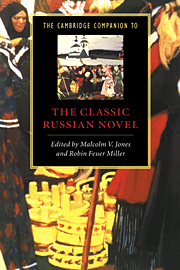3 - The countryside
from Part 1 - The setting
Published online by Cambridge University Press: 28 May 2006
Summary
Certainly since the time of Theocritus, and doubtless long before that, weary city dwellers have sought - or at least thought about seeking - escape from their noisy, bustling, confining urban world into the tranquillity, spaciousness, and presumed leisure of the countryside. In such moods nature generally appears to them in her most benign aspects: warm but not hot, green, fertile, vivifying, motherly. The country resident, on the other hand, may feel an equally powerful impulse to escape: from the isolation, boredom, discomforts, and dangers of rural life to the security, social connectedness, and relative cultural richness of the town, where people can collectively defend themselves against a nature often not at all benign, as well as against less than benign fellow creatures.
The anti-urban urge has been a theme of literature almost since literature has existed at all. The Western tradition offers a long procession of passionate pastoralists, from Theocritus and Vergil down to Rousseau and beyond. Despite the fact that only a tiny minority of them actually lived in cities, the Russians absorbed the pastoral tradition enthusiastically if belatedly, themselves producing such elegant poetic celebrations of the bucolic life as Gavrila Derzhavin's delightful idyll “To Evgenii; Life at Zvanka” (1807).
- Type
- Chapter
- Information
- The Cambridge Companion to the Classic Russian Novel , pp. 41 - 60Publisher: Cambridge University PressPrint publication year: 1998
- 1
- Cited by



